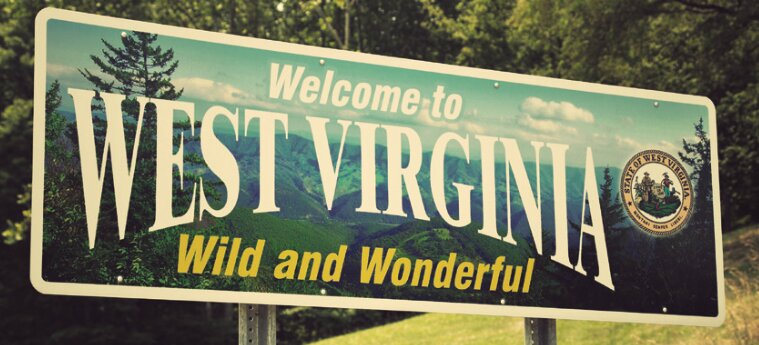
West Virginia’s newspaper history begins not long after the Revolutionary War. The first three newspapers were established in the “Eastern Panhandle,” according to the West Virginia Encyclopedia, published by the West Virginia Humanities Council. The Berkeley Advertiser, founded in Shepherdstown, was the first; it debuted in 1790.
By 1863, a remarkable 250 news publications had been established in West Virginia.
Reflecting its immigrant communities, some early newspapers were published in English, German and Italian languages.
“At various times, more than 40 Black newspapers have been published in West Virginia, beginning with The Freeman in Parkersburg (1881) and Martinsburg’s Pioneer Press (1882), published by J.R. Clifford. Charleston has had at least 16 Black newspapers, including the Advocate and Beacon Journal,” according to the West Virginia Encyclopedia. One of the final surviving Black-owned papers, the West Virginia Beacon Digest, ceased operations in 2006.
In 2020, Publisher-Owner Crystal Good sought to correct some of that wrong. The former newspaper editor, poet and writer, Good founded “Black By God” to tell Black residents’ stories and provide solutions journalism for the Black community.
“We do have a strong tradition in West Virginia,” Don Smith said. Smith is the outgoing executive director of the West Virginia Press Association. Former Assistant Executive Director and Advertising Director Betsy Miles is the new executive director.
“We have more newspapers than we have counties in the state,” Smith said.
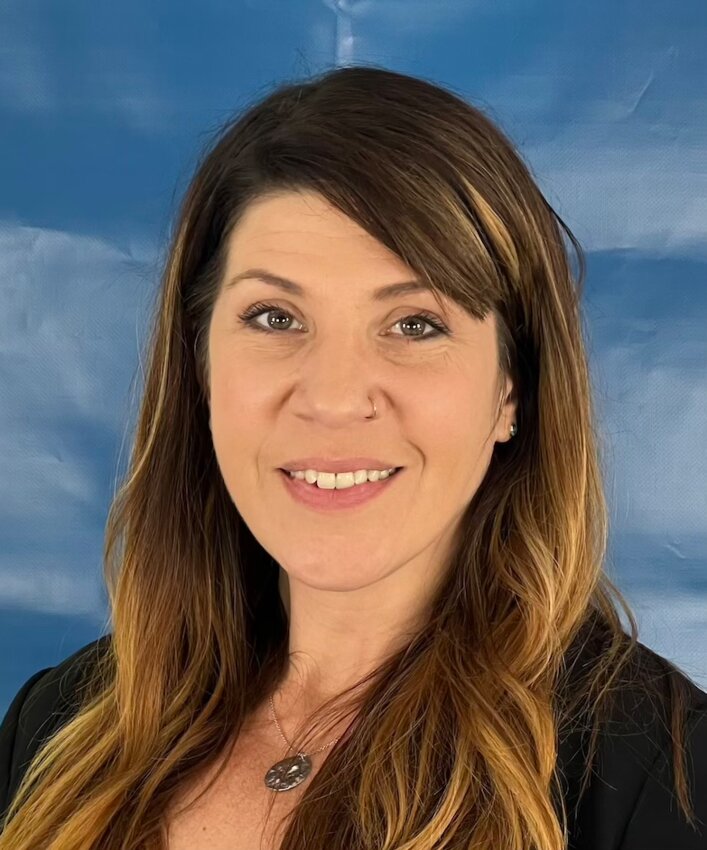
Those counties can be quite different in terms of population and economics. Smith cited the distinctions between the “eastern panhandle” counties — bedroom communities for D.C., Maryland and Virginia — versus counties in the “southern coalfields.”
It was in the South where two newspapers shuttered this year.
“The Welch News in McDowell County and the Pineville Independent Herald in Wyoming County are both closed,” Smith said.
Associated Press State Capital Correspondent Leah Willingham wrote about The Welch News’ demise in late July, providing some important context about the county and community now without a newspaper: “Today, 80% of the 17,850 remaining residents are white, still making it one of West Virginia’s most diverse counties. It’s also the poorest, with some of the lowest graduation and life expectancy rates in the nation. A third of all McDowell County residents live in poverty. The per capita income is $15,474.”
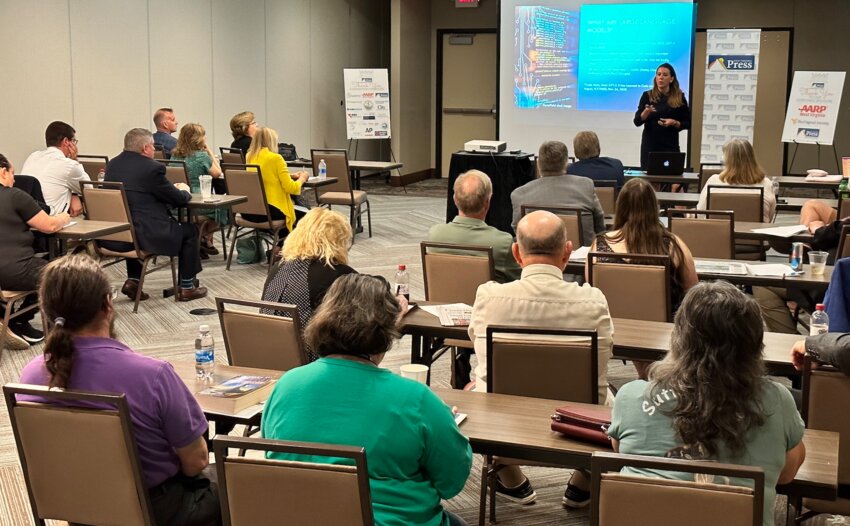
The Montgomery Herald and The Princeton Times have also closed, bringing the total to four newspapers shuttered in West Virginia since 2019.
“No community is better off without a local newspaper,” Smith said.
Newspaper circulation has largely followed population trends, Smith reported. He said Charleston used to be a city of 100,000 or more. As of 2021, the U.S. Census Bureau calculated 48,018 residents. “25,000 [in print circulation] — maybe more than that on the weekend — is our largest newspaper, so we only have small-market papers.”
There are currently 63 news media publishers in West Virginia, representing 23 owners or ownership groups, according to the press association. There are 14 dailies (publishing at least four days a week), 55 weeklies and two college newspapers.
Smith said that there are a number of things weighing heavily on members’ minds. They are trying to figure out sustainable business models, no different from other publishers outside the state. But they also contend with poverty, dampened economies and communities without reliable, affordable internet access.
“Federal monies are coming in, and they’re supposed to make improvements, but a lot of our papers are very limited in what they can do online,” Smith said.
“Many of the downtowns in these little communities have seen the locally owned businesses now gone, struggling or very limited,” Smith said.
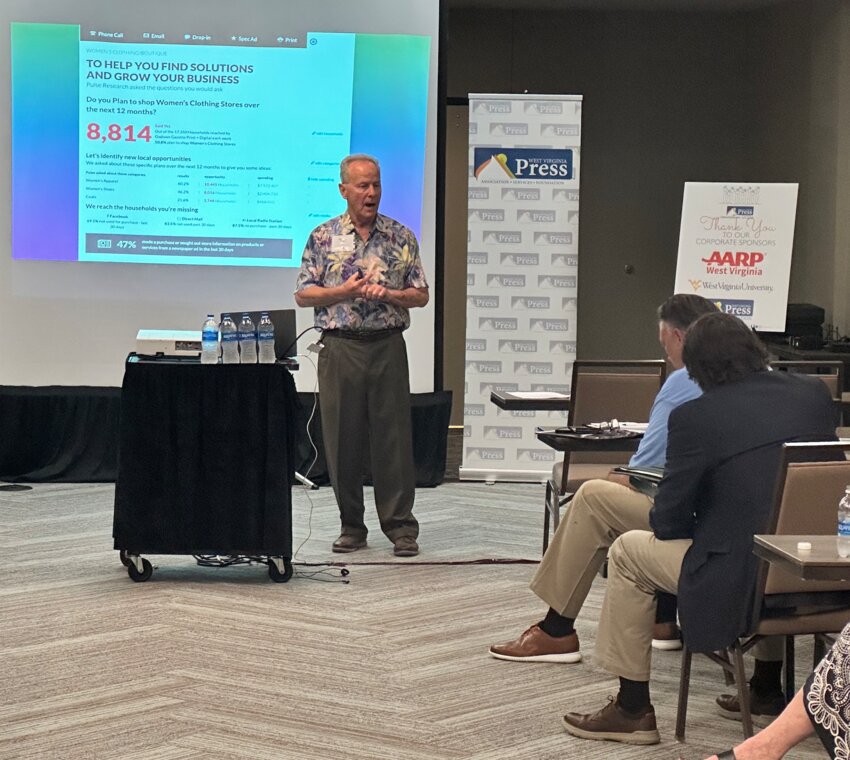
“Everybody focuses on ‘hyperlocal,’ and that’s your news coverage, but when your hyperlocal advertising doesn’t exist, you run into a problem. That’s a devastating situation for all the papers, and when your local economy is bad, it’s difficult to recruit and get quality staff you can afford to pay. Hiring is a major concern,” Smith added.
There’s also a concern about succession. “We have incredible newspaper owners, but many are older, and some don’t have a transition plan," Smith said. That prompted the press association to partner with West Virginia University on an “ownership initiative.” NewStart is a local news ownership initiative started by West Virginia University's Reed College of Media and the press association. Their mission is to “recruit, train and support the next generation of community news publication owners,” in-state and nationwide.
The press association offers free web development services to members. It also helps members connect with West Virginia’s Latino community by producing and hosting Spanish-language news videos.
“I’ve worked in this state all my career, going on 40 years now,” Smith said. “The residents who follow things will come and whisper in your ear, and that may start an investigation. They're very engaged in their community and like to be engaged with the newspaper; they see it as their newspaper.”
A reporter’s perspective
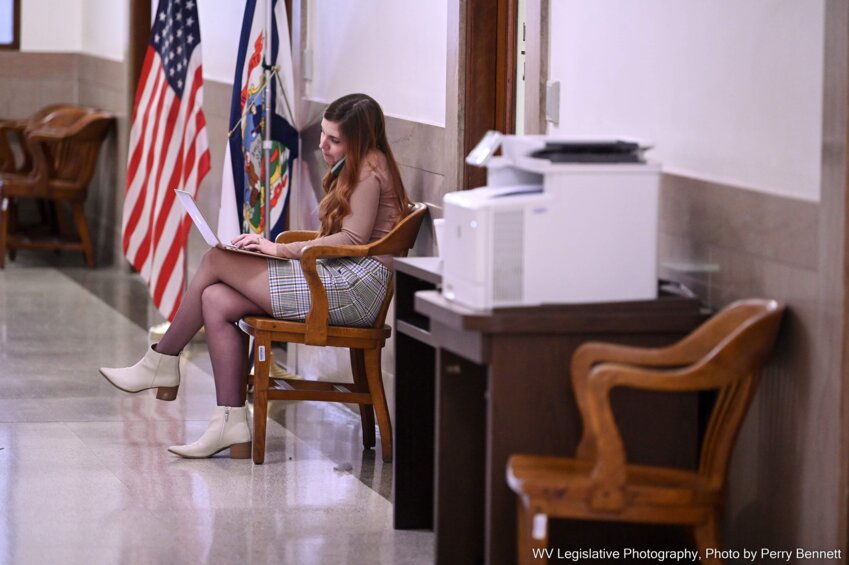
Amelia Ferrell Knisely is an investigative reporter with West Virginia Watch, a nonprofit digital daily. She’s also a former Report for America Corps member and a West Virginia native. She spoke with E&P about her experiences with local news growing up in the state: “Like a lot of West Virginia kids, I went to a very small school, and I had no exposure to news beyond my parents reading the newspaper or current events classes in high school. I did not grow up knowing ‘journalist’ was a career I could pursue.”
After college, she worked for a time in local TV news and went on to report for The Tennessean in Nashville, where she and her husband, a musician, first settled their family.

In 2019, she saw a post about a Report for America (RFA) job covering poverty in West Virginia.
“That was my dream job,” she said. “I was drawn to stories of poverty, especially the intersection of policy and poverty and how it affects families. I showed it to my husband, and he said, ‘That’s your job. We’re moving. We’ve got to do it.’”
Since returning to her home state, Knisely has reported for the Charleston Gazette-Mail, as well as for West Virginia Public Broadcasting and the nonprofit Mountain State Spotlight.
West Virginia Watch — a States Newsroom that debuted in July — covers criminal justice, the environment and energy, government, health, labor, education and other public concerns. The newsroom is led by Editor-in-Chief Leann Ray, an award-winning journalist and lifelong West Virginian.
Since the July launch, Knisely has been reporting on government, education and child welfare for the Watch.
“I cover really vulnerable populations. The foster care crisis is everyone’s crisis in West Virginia,” she said. “It’s rare that you meet someone who doesn’t have an aunt or uncle raising a child not their own or a grandparent raising grandchildren. We have some counties where the data shows that one in three grandparents are raising their grandkids.”
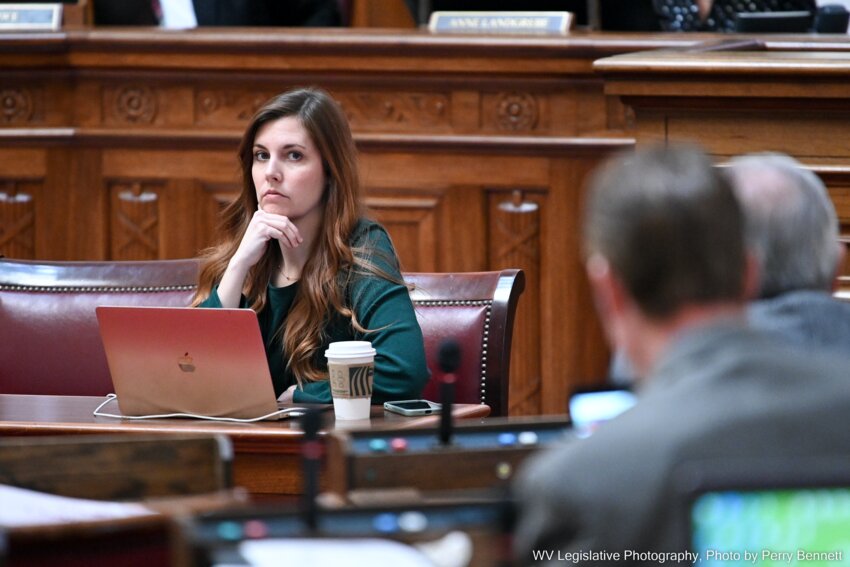
Knisely observed that despite the number of local news sources across the state, there are fewer and fewer statehouse and county government reporters.
“We have great statehouse reporters who do vital work, but there’s certainly a need for more reporters to cover decision-makers and their special interests,” she said.
“It’s also difficult but important to highlight the realities of living in West Virginia right now, in such a high-cost-of-living time,” she said. “West Virginia had a 25% increase in child poverty in the last two years, while we’ve had a lot of business and tourism development in the state. We’re glad for that, but I often feel like those announcements make it seem like everything is great here. It may be great that you’re bringing in 60 jobs to the factory, but we still have real issues with unemployment, with the lowest working rate in the country and the highest rate of people on social assistance. These stories take time, and it’s often hard to go beyond the statistics.”
Statistics provide important context and trend lines, but the stories of the people and families of West Virginia are critical, insightful, intriguing, worrisome and beautiful.
“When I go to small towns, people are so grateful that somebody cares,” she added. “And they’re often like, ‘Well, you’re here for this story, but let me tell you about this other story.’ Many people remember having robust coverage in their counties. … And while there is mistrust in national media — and that rhetoric certainly exists in West Virginia — and maybe some distrust in local news, too, I think that people really just want to be heard.”
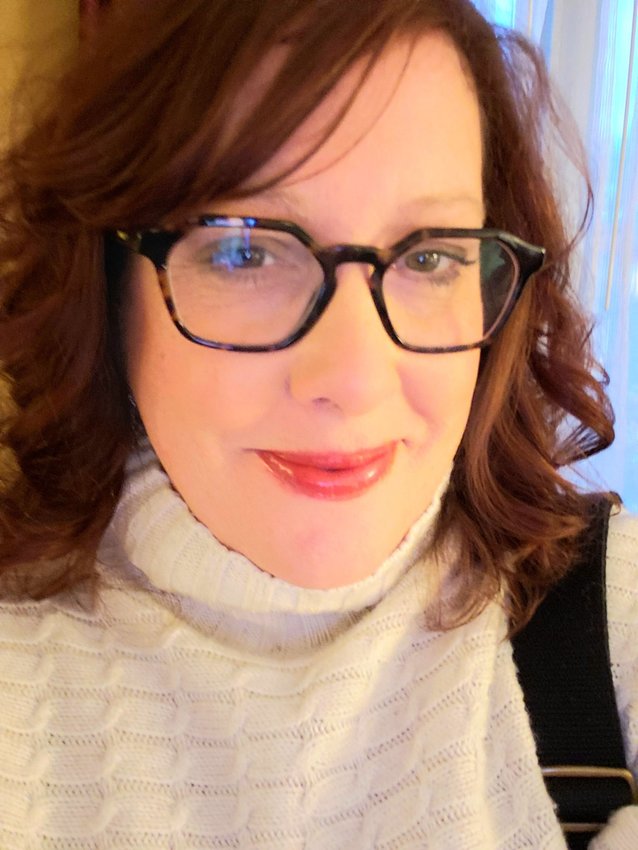 Gretchen A. Peck is a contributing editor to Editor & Publisher. She’s reported for E&P since 2010 and welcomes comments at gretchenapeck@gmail.com.
Gretchen A. Peck is a contributing editor to Editor & Publisher. She’s reported for E&P since 2010 and welcomes comments at gretchenapeck@gmail.com.
Comments
No comments on this item Please log in to comment by clicking here